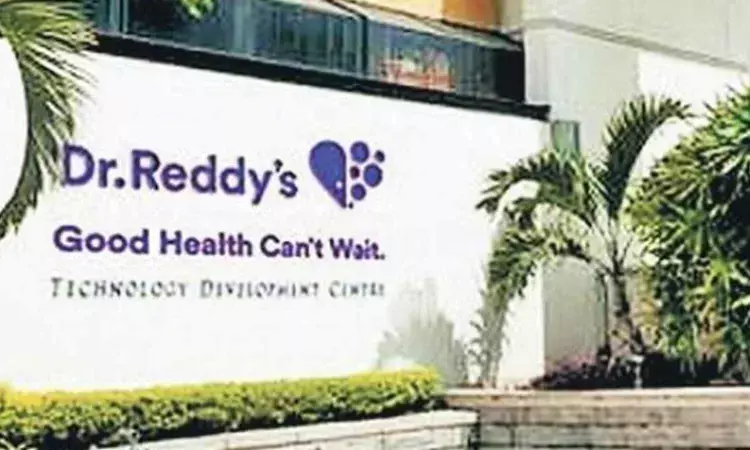- Home
- Medical news & Guidelines
- Anesthesiology
- Cardiology and CTVS
- Critical Care
- Dentistry
- Dermatology
- Diabetes and Endocrinology
- ENT
- Gastroenterology
- Medicine
- Nephrology
- Neurology
- Obstretics-Gynaecology
- Oncology
- Ophthalmology
- Orthopaedics
- Pediatrics-Neonatology
- Psychiatry
- Pulmonology
- Radiology
- Surgery
- Urology
- Laboratory Medicine
- Diet
- Nursing
- Paramedical
- Physiotherapy
- Health news
- Fact Check
- Bone Health Fact Check
- Brain Health Fact Check
- Cancer Related Fact Check
- Child Care Fact Check
- Dental and oral health fact check
- Diabetes and metabolic health fact check
- Diet and Nutrition Fact Check
- Eye and ENT Care Fact Check
- Fitness fact check
- Gut health fact check
- Heart health fact check
- Kidney health fact check
- Medical education fact check
- Men's health fact check
- Respiratory fact check
- Skin and hair care fact check
- Vaccine and Immunization fact check
- Women's health fact check
- AYUSH
- State News
- Andaman and Nicobar Islands
- Andhra Pradesh
- Arunachal Pradesh
- Assam
- Bihar
- Chandigarh
- Chattisgarh
- Dadra and Nagar Haveli
- Daman and Diu
- Delhi
- Goa
- Gujarat
- Haryana
- Himachal Pradesh
- Jammu & Kashmir
- Jharkhand
- Karnataka
- Kerala
- Ladakh
- Lakshadweep
- Madhya Pradesh
- Maharashtra
- Manipur
- Meghalaya
- Mizoram
- Nagaland
- Odisha
- Puducherry
- Punjab
- Rajasthan
- Sikkim
- Tamil Nadu
- Telangana
- Tripura
- Uttar Pradesh
- Uttrakhand
- West Bengal
- Medical Education
- Industry
Dr Reddy's Laboratories Gets CDSCO Panel Nod for Marketing Approval of Siponimod Tablets

New Delhi: The Subject Expert Committee (SEC) functional under the Central Drug Standard Control (CDSCO) has granted marketing authorization of Dr Reddy's Laboratories' Siponimod tablets 0.25 mg, 1 mg, and 2 mg with the condition to conduct a Phase-IV clinical trial.
This came after the firm presented a bioequivalence (BE) study result and data on the prevalence of the disease Secondary Progressive Multiple Sclerosis (SPMS) in the Indian scenario and concluded the drug could be considered under the orphan drug category.
Multiple Sclerosis (MS) is a disease of the central nervous system (CNS), which is made up of the brain, spinal cord, and optic nerve. This disorder causes the destruction of the coating (myelin) that surrounds and protects nerve fibers (axons). As a result, the damage disrupts the normal flow of messages (nerve impulses) from the CNS, causing a reduction or loss of body function. In many cases, the nerve fibers (axons) are also destroyed. Secondary-progressive multiple sclerosis (SPMS) is a form of the disease that develops from relapsing-remitting multiple sclerosis (RRMS).
Siponimod is in a class of medications called sphingosine l-phosphate receptor modulators. It works by decreasing the action of immune cells that may cause nerve damage. Siponimod binds with high affinity to both S1P receptors 1 and 5. This drug blocks the ability of lymphocytes to release from the lymph nodes, decreasing the number of lymphocytes found in the peripheral blood.
Siponimod is used to prevent episodes of symptoms and slow the worsening of disability in adults with relapsing-remitting forms (course of disease where symptoms flare up from time to time) of multiple sclerosis (MS), a disease in which the nerves do not function properly and people may experience weakness and numbness.
Earlier, the Medical Dialogue Team had reported that the Subject Expert Committee (SEC) functional under the Central Drug Standard Control Organisation (CDSCO) had opined the firm to submit the data on the prevalence and the genetic polymorphism of the disease secondary progressive multiple sclerosis.
Now in continuous, at the recent SEC meeting for Neurology and Psychiatry held on 29 October 2024, the expert panel reviewed the BE study results and data of Siponimod tablets 0.25 mg, 1 mg, and 2 mg on the prevalence of Secondary Progressive Multiple Sclerosis (SPMS) in the Indian scenario presented by Dr Reddy's Laboratories.
After detailed deliberation, the committee recommended that in the prescribing information of the product, the firm should include CYP2C9 genotype determination before initiation of treatment.
Following the above, the committee recommended that market authorization be granted with the condition that a Phase IV clinical trial be conducted.
Furthermore, the expert panel suggested that the firm is required to submit the Phase-IV study protocol to CDSCO within three months of the grant of market authorization for further evaluation by the committee.
Also Read:Pfizer Gets CDSCO Panel Nod To Conduct Phase III CT of Rimegepant
Doctor of Pharmacy
Dr. Divya Colin, a Doctor of Pharmacy Graduate with extensive experience in clinical and hospital settings and confidently equipped with diagnostic and therapeutic skills. She also has spread out exposure to Oncology Departments in Mysore Medical College and Research Institute as Oncology Pharmacist. Currently she is building a career in clinical research and clinical data management. She has been a part of Medical Dialogue since January 2022.
Dr Kamal Kant Kohli-MBBS, DTCD- a chest specialist with more than 30 years of practice and a flair for writing clinical articles, Dr Kamal Kant Kohli joined Medical Dialogues as a Chief Editor of Medical News. Besides writing articles, as an editor, he proofreads and verifies all the medical content published on Medical Dialogues including those coming from journals, studies,medical conferences,guidelines etc. Email: drkohli@medicaldialogues.in. Contact no. 011-43720751


